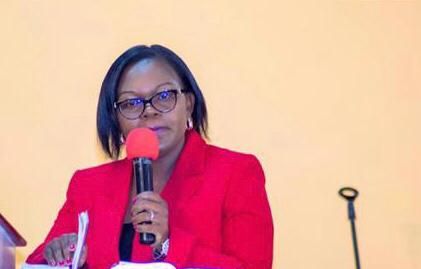By Vincent Gunde
Water for People, an international not for profit organization with a vision of a world where every person has access to reliable water and sanitation services organized a two- day training workshop on WASH Systems Strengthening index analysis for its partners from Chikwawa, Lilongwe and Dowa District Councils.
WASH systems strengthening involves taking actions and supporting interventions to strengthen the factors, the capacity of actors, and their inter-relationships (i.e improved access to information and the political economy of decision-making) that can improve the quality and sustainability of WASH services and ensure that all populations are served.

During the workshop, Water for People shared WASH index analysis tool of an ideal district with strong systems, the District Councils and their partners used the WASH index tool to analyze their systems and estimate their score/ status later each council presented their WASH systems status based on the tool.
Councils made their own presentations as to what the communities are doing in their districts and the impact of WASH Systems strengthening contributing to a global learning on approaches to strengthening WASH systems.
WASH Systems for Health programming is led and funded by the Foreign and Commonwealth Development Office (FCDO) supporting governments in six countries in Sub-Saharan Africa and South Asia to strengthen the systems needed to establish reliable, resilient and inclusive WASH services.
Speaking during the workshop held at Chikho Hotel in Mponela-Dowa, Water for People’s Director of Influence and Scale Kate Harawa, said WASH system is about long-term support and investing into the systems to create an enabling and conducive that allow people access, lasting WASH services.
Harawa said these WASH systems strengthening include supporting both local and National Government to have functional system with the necessary building blocks like relevant policies, regulation, institution arrangements, infrastructure, monitoring and planning frame works, coordination, finances, water resources, and management in place.
She said WASH services are provided through different service delivery models such as Assets +management model +level of service saying this is only possible if there are a strong enabling facilitating and regulating systems in place.
“Only a strong system can deliver services that last, WASH systems strengthening are interconnected to the system factors such as technologies, markets, cultural and social norms, and aid mechanisms, all of which are complex and interlinked in systems context of Health, Agriculture, Education and Ecological system,” said Harawa.
One of the workshop participants Willard Chirwa, Director of Planning and Development for Lilongwe District Council, said the WASH systems strengthening workshop is an eye opener for councils to do better in WASH service deliveries.
Chirwa said the councils will do a self-WASH systems assessment in line with the building blocks later each council will produce a District WASH systems action plan based on the identified gaps of which they will work with all district partners to address the weak building blocks and improve/maintain the strong building blocks, the assessment results will form a baseline for the FCDO funded project.
“As a council, the preliminary indicators basing on scoring percentages, things are better but there’s room for improvement,” he said.
Water for People is implementing WASH systems for Health programming from March, 2024 to December, 2027 with funding from Foreign and Commonwealth Development Office (FCDO) amounting to 2.5 million Great Britain Pound.


